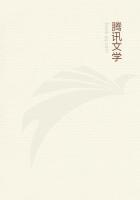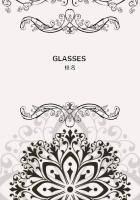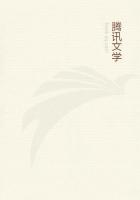The belief in luck is a sense of fortuitous necessity in the sequence of phenomena. In its various mutations and expressions, it is of very serious importance for the economic efficiency of any community in which it prevails to an appreciable extent. So much so as to warrant a more detailed discussion of its origin and content and of the bearing of its various ramifications upon economic structure and function, as well as a discussion of the relation of the leisure class to its growth, differentiation, and persistence. In the developed, integrated form in which it is most readily observed in the barbarian of the predatory culture or in the sporting man of modern communities, the belief comprises at least two distinguishable elements -- which are to be taken as two different phases of the same fundamental habit of thought, or as the same psychological factor in two successive phases of its evolution. The fact that these two elements are successive phases of the same general line of growth of belief does not hinder their coexisting in the habits of thought of any given individual. The more primitive form (or the more archaic phase) is an incipient animistic belief, or an animistic sense of relations and things, that imputes a quasi-personal character to facts. To the archaic man all the obtrusive and obviously consequential objects and facts in his environment have a quasi猵ersonal individuality. They are conceived to be possessed of volition, or rather of propensities, which enter into the complex of causes and affect events in an inscrutable manner. The sporting man's sense of luck and chance, or of fortuitous necessity, is an inarticulate or inchoate animism. It applies to objects and situations, often in a very vague way; but it is usually so far defined as to imply the possibility of propitiating, or of deceiving and cajoling, or otherwise disturbing the holding of propensities resident in the objects which constitute the apparatus and accessories of any game of skill or chance. There are few sporting men who are not in the habit of wearing charms or talismans to which more or less of efficacy is felt to belong. And the proportion is not much less of those who instinctively dread the "hoodooing" of the contestants or the apparatus engaged in any contest on which they lay a wager; or who feel that the fact of their backing a given contestant or side in the game does and ought to strengthen that side; or to whom the "mascot" which they cultivate means something more than a jest.
In its ****** form the belief in luck is this instinctive sense of an inscrutable teleological propensity in objects or situations. Objects or events have a propensity to eventuate in a given end, whether this end or objective point of the sequence is conceiveD to be fortuitously given or deliberately sought. From this ****** animism the belief shaDes off by insensible gradations into the second, derivative form or phase above referred to, which is a more or less articulate belief in an inscrutable preternatural agency. The preternatural agency works through the visible objects with which it is associated, but is not identified with these objects in point of individuality. The use of the term "preternatural agency" here carries no further implication as to the nature of the agency spoken of as preternatural. This is only a farther development of animistic belief. The preternatural agency is not necessarily conceived to be a personal agent in the full sense, but it is an agency which partakes of the attributes of personality to the extent of somewhat arbitrarily influencing the outcome of any enterprise, and especially of any contest. The pervading belief in the hamingia or gipta (gaefa, authna) which lends so much of color to the Icelandic sagas specifically, and to early Germanic folk-legends, is an illustration of this sense of an extra-physical propensity in the course of events.
In this expression or form of the belief the propensity is scarcely personified although to a varying extent an individuality is imputed to it; and this individuated propensity is sometimes conceived to yield to circumstances, commonly to circumstances of a spiritual or preternatural character. A well-known and striking exemplification of the belief -- in a fairly advanced stage of differentiation and involving an anthropomorphic personification of the preternatural agent appealed to -- is afforded by the wager of battle. Here the preternatural agent was conceived to act on request as umpire, anD to shape the outcome of the contest in accordance with some stipulated ground of decision, such as the equity or legality of the respective contestants' claims. The like sense of an inscrutable but spiritually necessary tendency in events is still traceable as an obscure element in current popular belief, as shown, for instance, by the well-accredited maxim, "Thrice is he armed who knows his quarrel just," -- a maxim which retains much of its significance for the average unreflecting person even in the civilized communities of today. The modern reminiscence of the belief in the hamingia, or in the guidance of an unseen hand, which is traceable in the acceptance of this maxim is faint and perhaps uncertain; and it seems in any case to be blended with other psychological moments that are not clearly of an animistic character.
For the purpose in hand it is unnecessary to look more closely into the psychological process or the ethnological line of descent by which the later of these two animistic apprehensions of propensity is derived from the earlier. This question may be of the gravest importance to folk-psychology or to the theory of the evolution of creeds and cults. The same is true of the more fundamental question whether the two are related at all as successive phases in a sequence of development.















